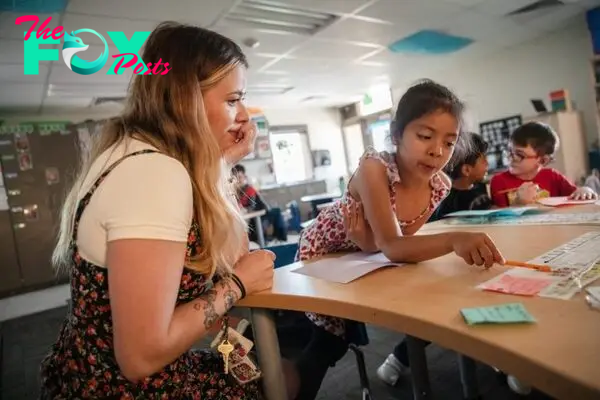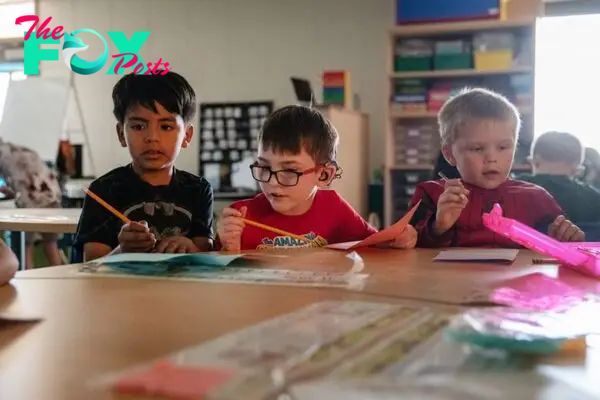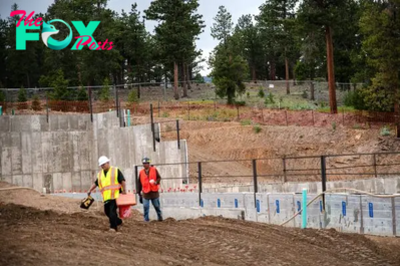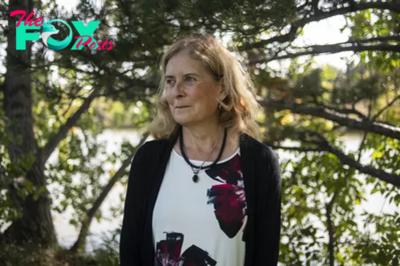Education
Colorado is launching a teacher apprenticeship program in race to solve chronic staff shortages
LONGMONT — They barely ever stop wiggling or giggling, and yet Deejha Blash-Lopez still manages to teach her kindergarten class how to sound out words and syllables — the same skills she learned decades ago in a classroom just down the hallway.
Blash-Lopez, a teacher at Mountain View Elementary School in Longmont, has come full circle at her school, despite being only about a year into her career. She now teaches in the same room where she attended fifth grade and still learns from her second grade teacher, Mrs. Horowitz, who continues to sub at the elementary school and was the first person to nudge her toward teaching.
“It feels right,” Blash-Lopez said. “It just feels like everything fell together, and it’s where I’m meant to be. It’s a surreal experience to be working with people that helped drive me to find this passion and were hoping to inspire others to become educators as well. I just hope that I can inspire other students like the educators that inspired me.”
The 22-year-old teacher is among a growing number of Colorado educators who have made their way into the classroom through apprenticeships, which have a deep history in other fields but are newer to teaching.
The Colorado Department of Education and school districts across the state are expanding apprenticeship opportunities for promising teaching candidates as staff shortages continue to cripple many schools. During the 2023-24 school year — the most recent year of available data — 635 teaching positions in Colorado schools were left unfilled for the year, according to figures from CDE. Meanwhile 1,756 vacant positions were filled using a temporary fix allowed by the state, such as granting workers an emergency or alternative teaching license.
There’s a speck of good news within that data: The number of unfilled educator positions dropped from the previous school year, though the number of positions filled through a shortage mechanism jumped 18%.
In hopes of drawing more people from a broader set of backgrounds into teaching careers, and keeping them in the classroom for more than a few years, both the state and at least three school districts have developed apprenticeship programs.
In St. Vrain Valley School District RE 1J, where Blash-Lopez began her training and now teaches, paraprofessionals and even high school students are paired with experienced educators in a classroom to learn from them in action. In eastern Colorado, Morgan County School District Re-3 in Fort Morgan offers more seasoned teachers an apprenticeship to earn endorsements in areas like special education. And farther south in El Paso County, Calhan School District RJ-1 is two years into a program that also supports paras in getting classroom experience and coursework so they can become licensed teachers.

The state, meanwhile, is preparing to launch its own apprenticeship program — likely in fall 2025 — that will allow prospective teachers to complete both their bachelor’s degree and initial teacher licensure at the same time. The State Teacher Degree Apprenticeship Program, made possible by legislation passed in 2023, will blend components of both traditional and alternative teacher licensure programs.
Students in traditional programs take courses aligned to a set of state teacher quality standards. After completing their college courses and student teaching, they earn their bachelor’s degree and a teaching license.
Alternative education program students must already have a bachelor’s degree in a specific content area. They take classes through a higher education institution or a school district to learn how to teach, but the bulk of their training occurs in the classroom. They either co-teach beside another educator or work as a “teacher of record” and, while under observation, instruct students before they’re officially licensed.
The new state apprenticeship program will make it easier for more people — of all ages and backgrounds — to begin a teaching career and will open up a path into the classroom for those who may assume they don’t fit the typical mold of a teacher. The program is a nod to a growing recognition in Colorado that good educators come from a variety of places beyond the conventional high school-to-college trajectory.
The apprenticeship program “helps diversify the pipeline of our teachers,” said Mary Bivens, executive director of educator workforce development at CDE. “We’re tapping into communities where there’s not such a high rate of people who already have bachelor’s degrees.”

Does that lower the bar on the quality of newcomers to teaching?
No, Bivens says, as the new apprenticeship program will abide by the same teacher quality standards that anchor both traditional and alternative teacher preparation programs. And it will give apprentices the hands-on classroom experience needed to master the skills behind teaching.
“The standards aren’t different,” she said. “It’s the approach to how you gain the competencies in those standards.”
Opening the classroom door to candidates who thought they missed their chance to teach
Calhan School District introduced a para-to-teacher apprenticeship program “out of dire necessity” after trying to keep all classrooms full during the chaotic days of the pandemic, Superintendent Dave Slothower said.
“We learned during COVID. We saw our paraprofessionals, many of them with years of experience delivering instruction, doing a great job,” Slothower said. “And we thought, can’t we access that talent to fill our rooms, to teach our students?’”
The district’s apprenticeship program caters to paras who have had at least three years of experience working with students and doesn’t require them to complete a bachelor’s degree, though it uses an incentive of higher pay to encourage them to pursue a degree, Slothower said.
-

 Education2d ago
Education2d ago5 ways anti-diversity laws affect LGBTQ+ people and research in higher ed
-

 Education3d ago
Education3d agoCollege may not be the ‘great equalizer’ − luck and hiring practices also play a role, a sociologist explains
-

 Education5d ago
Education5d agoMost Philly public school students have college ambitions − but their level of preparation depends on which high school they attend
-

 Education1w ago
Education1w agoAn American flag, a pencil sharpener − and the 10 Commandments: Louisiana’s law to mandate biblical displays in classrooms is the latest to push limits of religion in public schools
-

 Education1w ago
Education1w agoWhy expanding access to algebra is a matter of civil rights
-

 Education2w ago
Education2w agoSchool interventions offer best shot at reducing youth violence
-

 Education2w ago
Education2w agoColumbia Law Review article critical of Israel sparks battle between student editors and their board − highlighting fragility of academic freedom
-

 Education2w ago
Education2w agoHow DEI rollbacks at colleges and universities set back learning



























